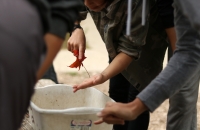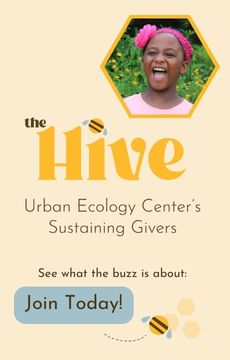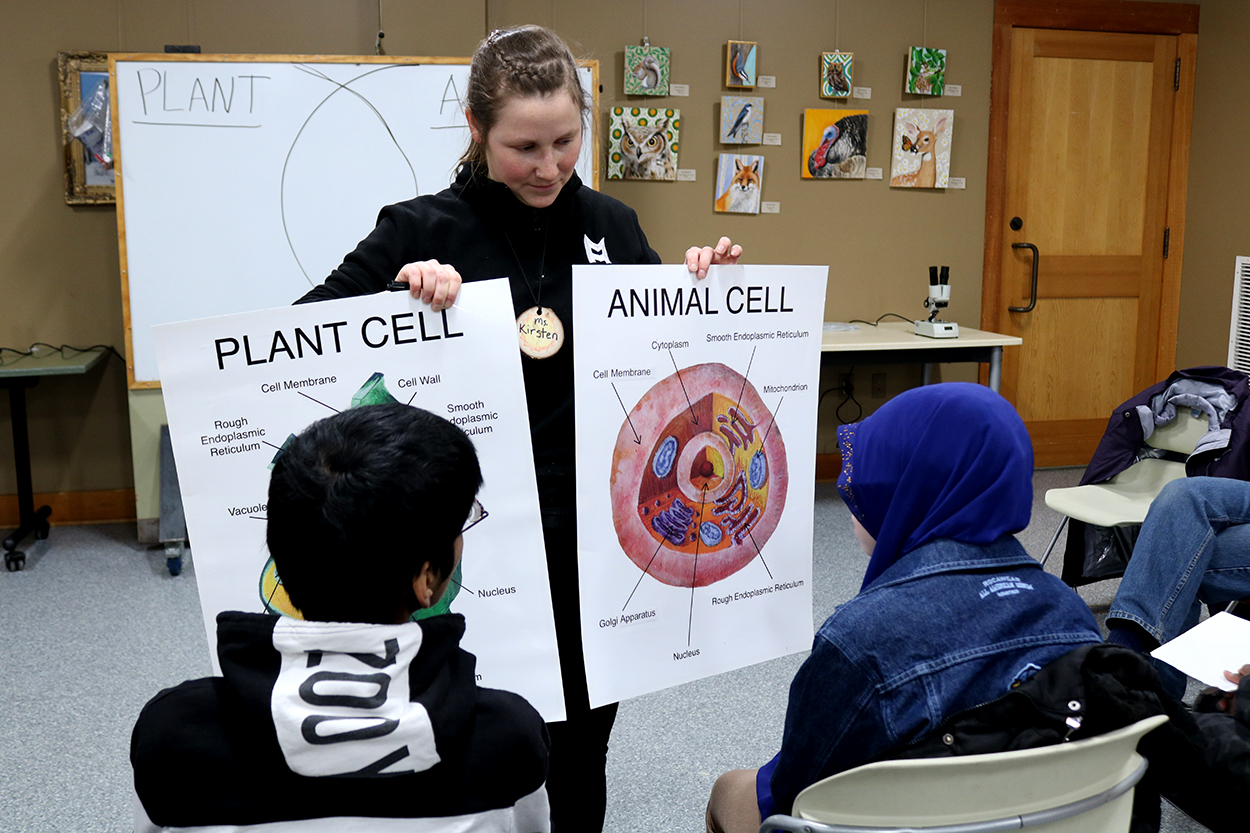 For at least the last 10 years the Center has had a partnership with the MPS Vision group through our Neighborhood Environmental Education Project (NEEP). It is for 6th, 7th and 8th grade MPS students who have visual impairments. The students come from numerous schools around the city for 6 full-day field trips throughout the school year. During these trips, we explore a variety of science and ecology topics with the students. Among the many themes are aquatic macroinvertebrates in the river and pond, cells, climate change, birds, geology, winter survival, and nature art. Alongside these topics, we do some recreation activities with them as well as rock climbing, canoeing, snowshoeing and cross-country skiing. We also give them opportunities to climb on logs and rocks in safe environments.
For at least the last 10 years the Center has had a partnership with the MPS Vision group through our Neighborhood Environmental Education Project (NEEP). It is for 6th, 7th and 8th grade MPS students who have visual impairments. The students come from numerous schools around the city for 6 full-day field trips throughout the school year. During these trips, we explore a variety of science and ecology topics with the students. Among the many themes are aquatic macroinvertebrates in the river and pond, cells, climate change, birds, geology, winter survival, and nature art. Alongside these topics, we do some recreation activities with them as well as rock climbing, canoeing, snowshoeing and cross-country skiing. We also give them opportunities to climb on logs and rocks in safe environments.
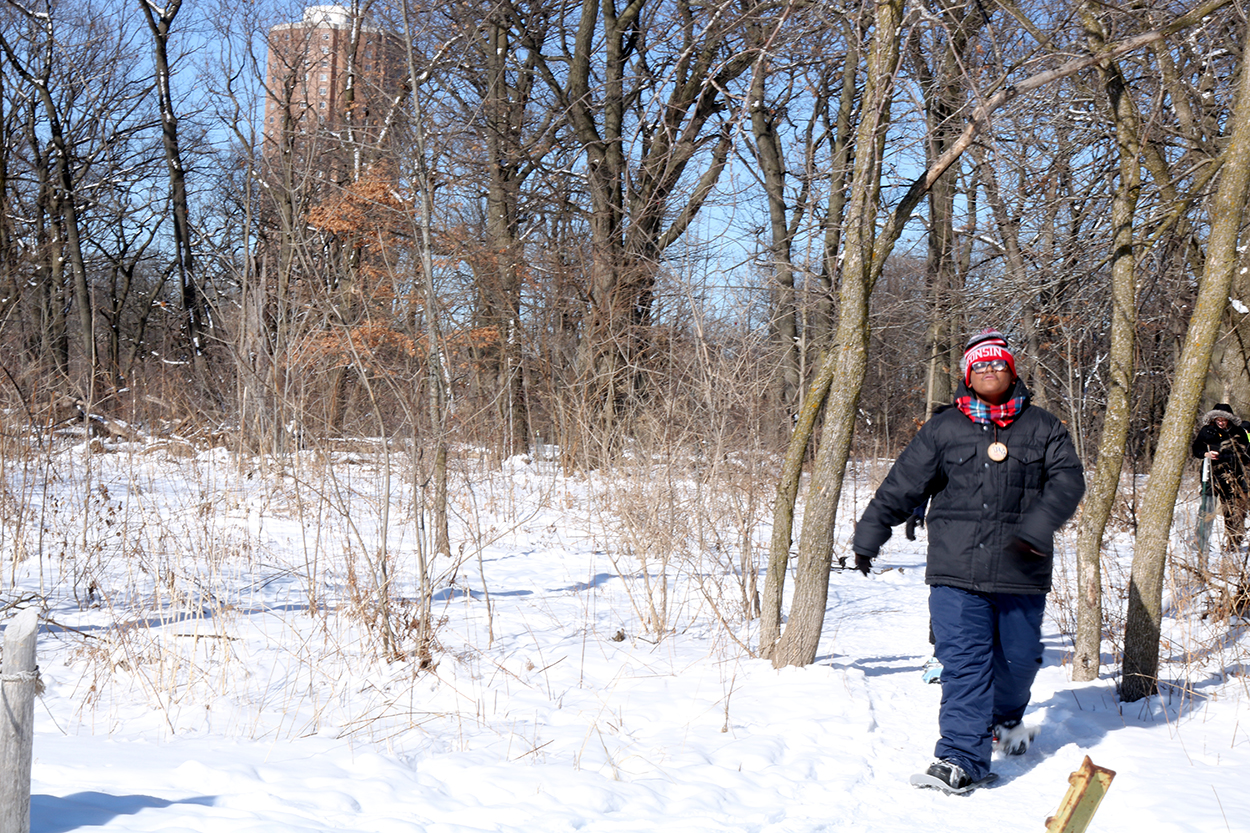
Davon, an MPS Vision student, while snowshoeing at Riverside Park
These field trips have been great opportunities for kids with visual impairments to experience nature and recreation in safe ways that challenge them to come out of their comfort zones. One of the teachers who has been participating in our field trips with the MPS Vision group said, “The students with visual impairments don’t often get opportunities to get outside and explore without people hovering over them and worrying about them. Also, some of the kids throughout the district may be in schools without other students with visual impairments so the thought was to combine that recreation and leisure piece with the social part. 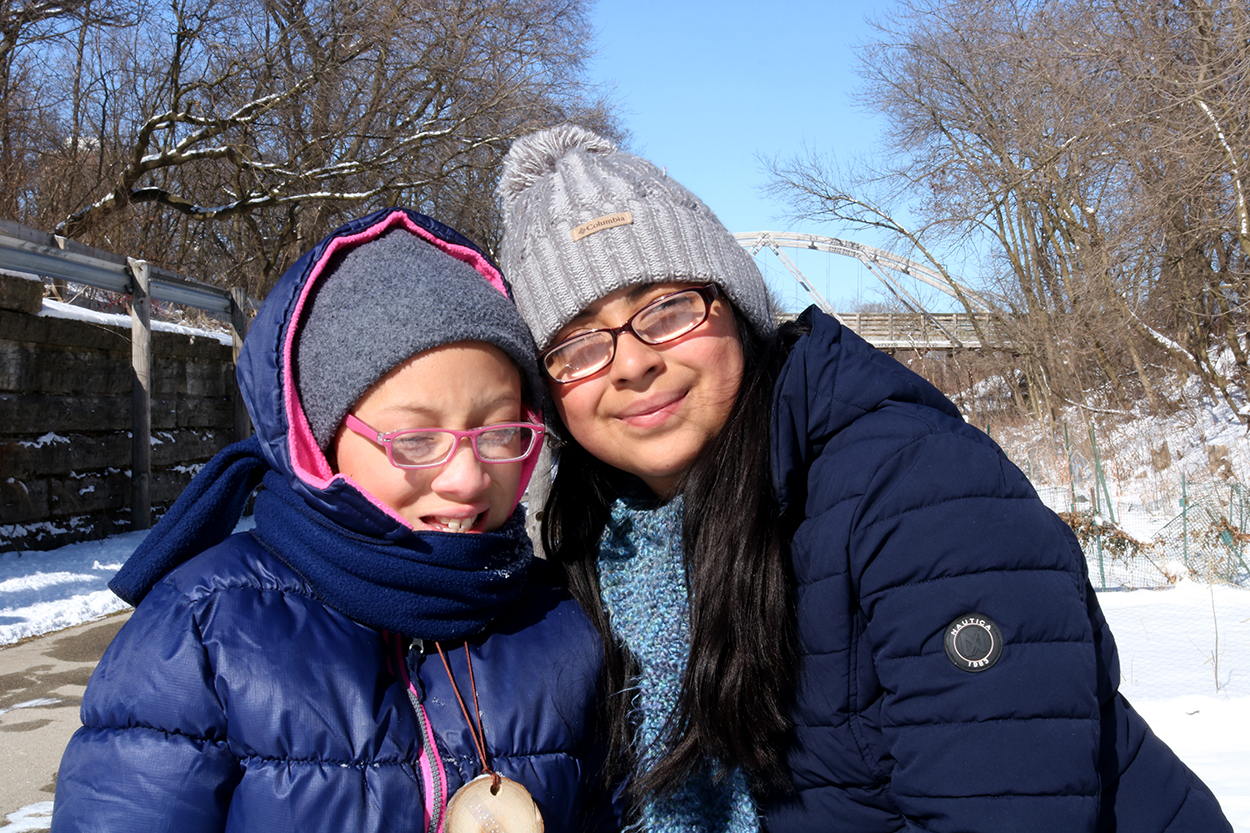 The partnership between the vision department and the UEC has been really great in that the kids get the opportunity to have hands-on experiences in ecology, science, biology and they also get that recreation and leisure piece where they get to explore outside without people worrying too much and maybe even pushing them to do things that they might not think they can do themselves. ” One of the students who attends the field trips said, “I love to come because I get to interact with other kids and they just make me feel more comfortable around myself because they have the same disability of their vision and I feel like I am not alone.”
The partnership between the vision department and the UEC has been really great in that the kids get the opportunity to have hands-on experiences in ecology, science, biology and they also get that recreation and leisure piece where they get to explore outside without people worrying too much and maybe even pushing them to do things that they might not think they can do themselves. ” One of the students who attends the field trips said, “I love to come because I get to interact with other kids and they just make me feel more comfortable around myself because they have the same disability of their vision and I feel like I am not alone.”
I feel so fortunate to be able to work with this remarkable group of students and teachers. They are a lot of fun and I have learned to be a better teacher from spending a lot of time with them. Every kid needs nature and I am happy to be able to provide learning experiences in nature for kids with visual impairments. As one student said, “We come here to learn about new things, but while we are doing all that we just have fun. It’s a really fun place.”


